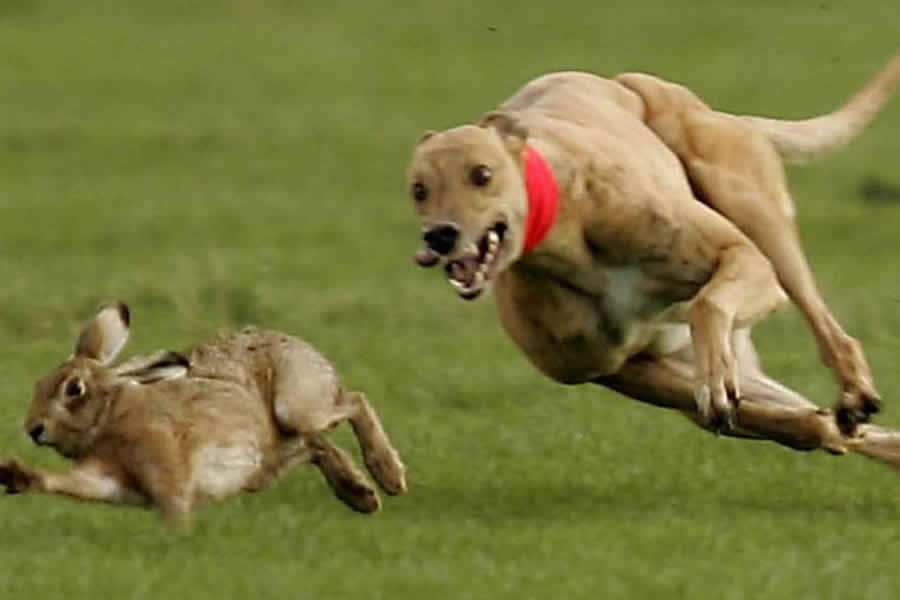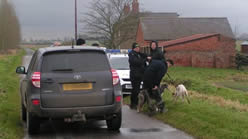
Hare Coursing
Since 2005, hare coursing has been illegal throughout the UK
Hare coursing is a different 'sport', involving two fast dogs being set loose to chase a hare. Traditionally, this could take place on a small scale but also as a large-scale, organised event, such as the horrible Waterloo Cup event which attracted thousands of spectators who came to watch and place bets. Hare coursing was banned, along with hare hunting, by the Hunting Act 2004, and is illegal, but coursing still takes place.
WHAT IS HARE COURSING?
Hare coursing with lurchers or greyhounds (or other fast, 'sight' hounds) involves the dogs competing against each other in pursuit of a live hare. Bets are placed on which of the two dogs will be the quickest to turn and catch the hare. Before the ban some of these competitions were undertaken in very high profile events with many people in attendance, such as the Waterloo Cup, the three-day event run annually at Great Altcar in Lancashire. This event has not happened since the ban was put in place as the Hunting Act also makes the participation or publicity of a hare coursing event an offence.
Coursing enthusiasts have claimed that caught hares die instantaneously from the bite of one dog. However, hares are often unsuccessfully grabbed several times by the dogs causing terrible injuries and stress. The hares are sometimes heard screaming in terror and pain as the dogs fight over them, as they may become a living rope in a brutal tug of war between the jaws of the dogs.
The government inquiry into hunting with dogs concluded in 2000: ‘It is clear, moreover, that if the dog or dogs catch the hare, they do not always kill it quickly.’
 Reports of hare coursing in the Fens, East Anglia and other regions around the country are becoming more frequent in the media, but it happens in any areas where hares still live. While it is important to recognise that some reports of hare coursing actually relate to hare poaching, it is worrying that reported incidents of this awful activity are increasing.
Reports of hare coursing in the Fens, East Anglia and other regions around the country are becoming more frequent in the media, but it happens in any areas where hares still live. While it is important to recognise that some reports of hare coursing actually relate to hare poaching, it is worrying that reported incidents of this awful activity are increasing.
WHAT IS THE DIFFERENCE BETWEEN HARE COURSING AND HARE POACHING?
There has been a substantial increase in the number of reports of hare coursing in certain parts of the country, leading to concerns that this traditional ‘sport’ is having a revival. Hares also face the threat of poaching (not to mention hare hunting, as described above). To ensure the different threats to hares are dealt with appropriately, it is important to understand what each of them look like:
Organised hare coursing - involving many dogs competing with each other in a competition involving rules, referees and spectators, such as the Waterloo Cup event. This type of hare coursing has practically disappeared since 2009 after some high profile prosecutions and because the Hunting Act 2004 specifically bans even being an spectator of these events.
Hare poaching - trespassing on private land to catch hares, perhaps for food or fun. Although the same type of dogs hare coursers use are used to poach hares, this does not typically involve a competition between two dogs. Hare poaching is still quite common.
Improvised hare coursing/poaching – a mix of coursing and poaching, which involves trespassing to catch hares but is also a competition between dogs. This is less common but still exists.
The text above was taken of The League Against Cruel Sports website - https://www.league.org.uk/hare-hunting-and-hare-coursing

